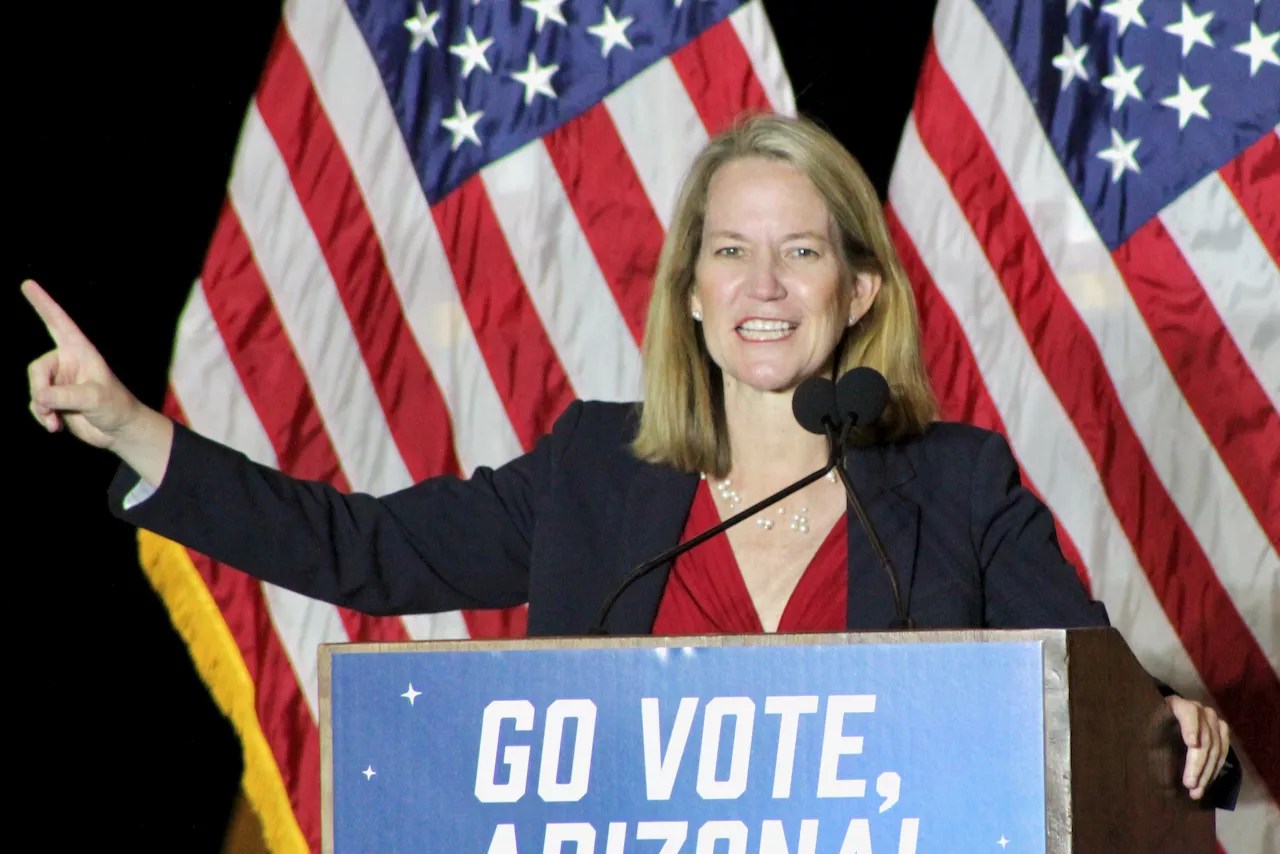
Elias Weiss

Audio By Carbonatix
Payouts can’t undo the untold damage the opioid crisis has done to Arizona families. But Attorney General Kris Mayes argues that money from Big Pharma can help people who are suffering.
So Arizona’s top lawyer is continuing the legal fight against a handful of pharmaceutical companies and grocery giant Kroger – which operates as Fry’s and Smith’s in Arizona – to finalize settlements that will bring a payout of hundreds of millions of dollars to the state.
A portion of $380 million in settlements so far is expected to start flowing into the state and local governments by the end of the year.
“Beginning in the mid-1990s, opioid manufacturers pursued aggressive sales strategies to increase sales of their prescription opioids,” Mayes said in one of two Oct. 4 filings in Maricopa County Superior Court. “The rise in opioid prescriptions caused a devastating rise in opioid abuse, dependence, addiction and overdose deaths in the state of Arizona.”
The two filings against Allergan, an Irish company with a footprint in the U.S., and Israeli-based Teva Pharmaceutical Industries are the latest legal moves in settlements Mayes announced on June 9. Arizona will receive $380 million from the settlements with the two drug companies and two pharmacy chains – $51.2 million from Allergan, $92.9 million from Teva, $113.3 million from CVS and $123.3 million from Walgreens.
The legal filings earlier this month weren’t new allegations against the companies but instead part of the legal process to finalize the settlements, according to Richie Taylor, Mayes’ communications director.
“These are not new suits. They are legal filings required to finalize the settlements that have been agreed to by all parties and the courts after years of litigation,” Taylor said. “The litigation and the investigation into the opioid manufacturers has been going on for many years. We have reached settlements now with many of the major drug companies.”
“The litigation is being finalized now, and that’s why these settlement filings are getting filed now,” he added.
On Sept. 12, Mayes announced that Arizona is also part of a national opioids case against Kroger that will bring a portion of a $1.37 billion settlement to the state.
“This agreement represents our ongoing commitment to holding the companies that created or worsened Arizona’s opioid epidemic accountable,” Mayes said in a prepared statement. “These settlements will help save lives and ensure these companies do not allow anything like this to happen again.”
Overall, Arizona is expected to receive at least $1.14 billion in opioid settlement funds over 18 years from several drug companies, distributors and pharmacies. The state receives 44% of that, or about $502 million, while local jurisdictions will receive 56%, or about $639 million, according to a state website tracking the settlements.
Despite the long wait, Mayes said she hoped these dollars will “play a crucial role” in helping people suffering from the opioid crisis.
“These agreements mark a significant step forward in Arizona’s efforts to combat the devastating effects of the opioid crisis on individuals, families and communities across our state,” Mayes said. “While no amount of money can fully make up for the disastrous impact opioids have had on Arizonans, these dollars will play a crucial role in helping communities meet the needs of those suffering from this crisis.”